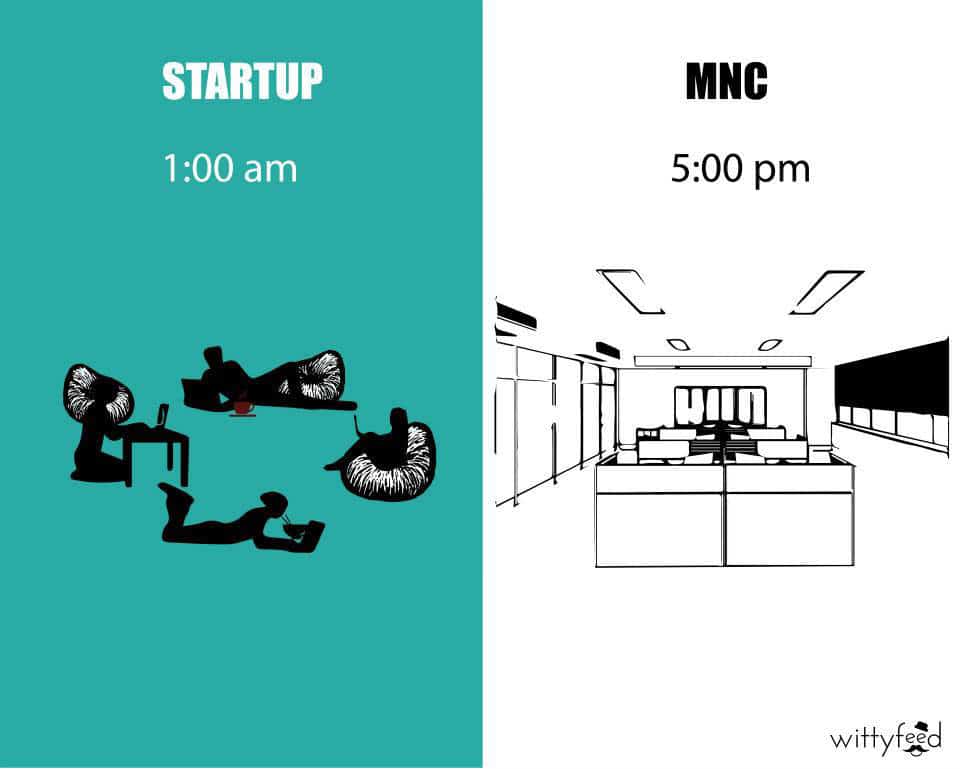The temptation of applying something to from a successful business is unavoidable.
Learning how they did it and applying it to your startup will make you successful because it has done so for a billion dollar firm. Right? No! Because the dynamics of the entrepreneurship keep changing daily. What may have worked for a bicycle company will not work for an advanced automobile firm. Eric Ries in his book, ‘The Lean Startup’, debunks the following common myths about startups.
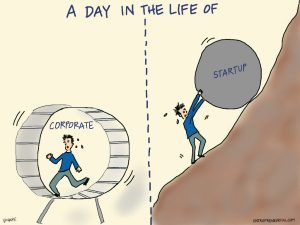
startup is not just another business
Talking Fridges and Walking Advertisements: The Future of Digital with Neil Patel
Myth#1: Startup is not just another business
The common misconception about a startup is that it is like any other regular business. The core of a startup is creating something completely new even if to create a better application of an existing technology. A startup is an innovative experiment about which nothing is known for sure. It is an explorer’s ship charting an undiscovered territory.

startup is a human enterprise.
Myth#2: Startup is not just a product
Founders often think that startup is just an innovation or a product. In reality, startup is an institution or to be precise – a human enterprise. In reality it is a compendium of products and everything customers come in contact with. It is everything related to your idea e.g website, customer support etc.
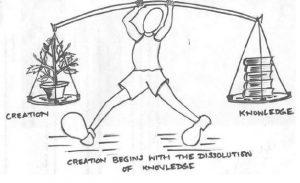
Traditional wisdom won’t work
Read about Guy Kawasaki and The Art of Start 2.0
Myth#3: Traditional wisdom won’t work
If a startup is something completely new and innovative so how can you succeed by following the time-tested traditional methods? No matter how much something appeals to you about another business it may not work for your startup because it was meant for certain products and customers, in contrast maybe, neither exists for what you are creating. You need to completely discover what works for your startup.
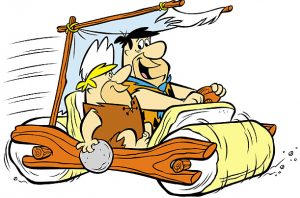
Startup is driven not launched
Myth#4: Startup is more of a car than a rocket
A major shift has occurred about how startups originate. Instead of launching it with a fixed journey map in advance you need to create a minimum viable product and learn how customers react to it and then change the course over time to adapt. As Reis says, a startup must be like a car which can be steered. No matter how many roadblocks there are in our way we can make detours and reach to our destination.

Put extra effort in your market strategy.
How to Keep Your Start-up Alive Amid the Pandemic of Coronavirus?
Myth#5: A product is not enough
Startups fool themselves if they think after creating a product they are ready to launch therefore they put very little effort in marketing area which leads them to failure. A product you understand is not enough! Investors and customers have to understand it too. This is why startups need to have an effective business and marketing strategy too.

Learn the boring stuff too!
Myth#6: The boring stuff is important too
We have learnt over the years to do only what you enjoy and you will succeed. This is another common myth about startups. As your startup is going to receive a complete uncertain environment therefore new ways to measure the output must be constructed and emphasis must be given on menial and boring details.

Learn what customers want. Don’t assume!
Myth#7: Learn what customers really want
Customer often don’t tell what they want exactly. They may tell you one thing and it will still lead to failure because there is a difference between what they tell you they want and what they really want. This is why it is necessary to run scientifically organized experiments on your customers and you’ll learn a great deal about your product’s market this way.

No product is a perfect product.
Does Your Startup Need Bootstrapping Or Investments?
Myth#8: Product is the end result, not first
Startups often think they have devised a product and that’s it. It is perfect and will survive in market. You launch a product, people may not like it. This is why it is integral to learn when to keep going and when to optimize the product to meet the customer’s requirements. The only thing which remains constant is your vision then comes the strategy to implement your vision and create a product.
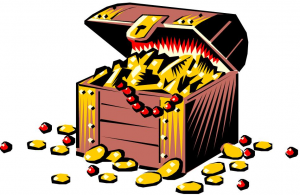
Failure is treasure
Myth#9: Failure is treasure
Your plan may not work as you anticipated it and you think you are done. This isn’t true in case of startups. According to Edison, you learn from failures how not to do something. Failures like that are necessary for startups in order to succeed in an uncertain environment.
Conclusion
We hope we have helped change your mind. Do read ‘The Lean Startup’ by Eric Ries. It is a must for startups of this age.
Do you know anything valuable about startups which should be known to startup community, then comment below.

